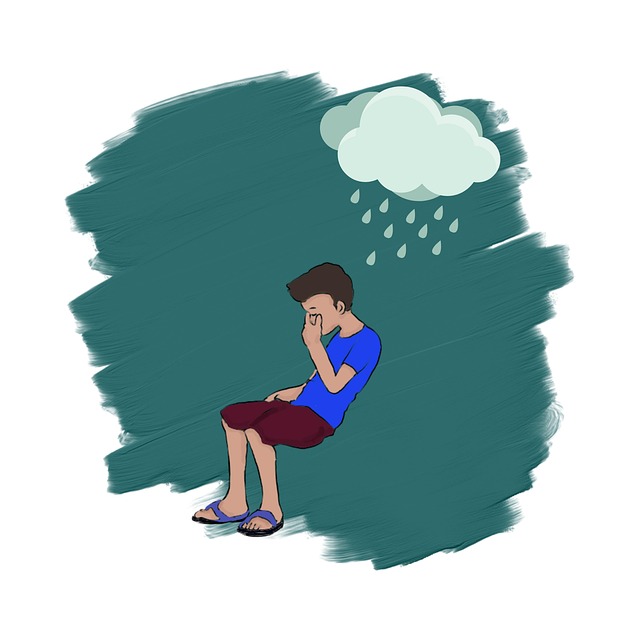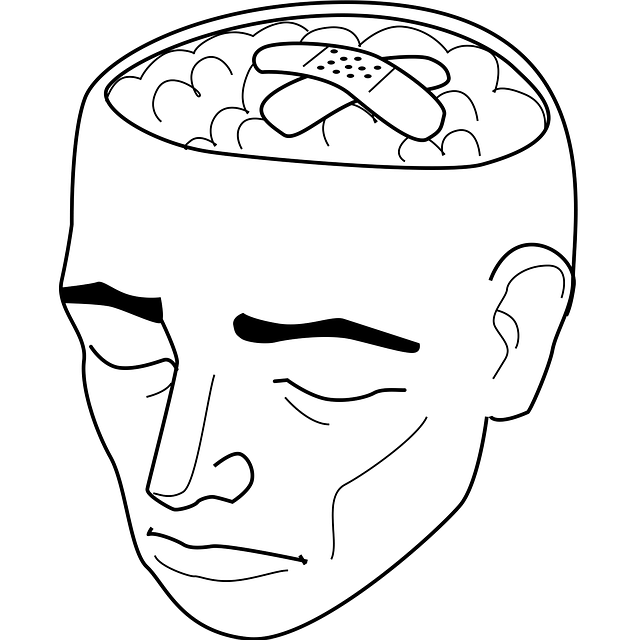Anxiety disorders are common global mental health issues manifesting as fear, worry, and physical symptoms. Louisville Exposure and Response Prevention Therapy (ERPT), a type of Cognitive Behavioral Technique (CBT), offers a powerful solution through exposure therapy and response prevention techniques. By gradually exposing individuals to feared situations, ERPT empowers them to manage anxiety, foster self-compassion, and improve overall well-being. Integrated with lifestyle changes, support systems, and mental wellness coaching, this holistic approach significantly enhances anxiety management and community mental health outcomes.
Anxiety disorders affect millions, causing debilitating symptoms that can impact daily life. Understanding these conditions and their far-reaching effects is the first step towards managing them effectively. This article explores powerful techniques for navigating anxiety, focusing on Louisville Exposure and Response Prevention (E/RP) therapy as a proven, step-by-step approach. We also delve into cognitive behavioral strategies, lifestyle adjustments, and the importance of support systems for long-term anxiety reduction.
- Understanding Anxiety Disorders and Their Impact
- Louisville Exposure and Response Prevention Therapy (E/RP): A Step-by-Step Guide
- Incorporating Cognitive Behavioral Techniques for Daily Management
- Lifestyle Changes and Support Systems for Long-Term Anxiety Reduction
Understanding Anxiety Disorders and Their Impact

Anxiety disorders are a significant mental health concern, affecting millions worldwide and impacting daily functioning. It’s essential to understand that anxiety isn’t simply feeling nervous or worried; it’s a complex condition with various types, including generalized anxiety disorder, panic attacks, and social phobia. These disorders can lead to intense fear, persistent worry, and physical symptoms like rapid heartbeat and insomnia. In severe cases, individuals may experience debilitating avoidance behaviors, significantly hindering their quality of life.
Louisville Exposure and Response Prevention Therapy (ERPT) is a highly effective approach for managing anxiety disorders. ERPT combines exposure therapy with response prevention techniques, helping individuals confront feared situations while learning to manage their anxious responses. This evidence-based method has gained recognition in the mental health field, and many healthcare providers are now equipped with the necessary skills thanks to Cultural Competency Training and Risk Assessment for Mental Health Professionals. Additionally, Mental Wellness Coaching Programs Development offers personalized support, promoting overall well-being and empowering individuals to take control of their anxiety.
Louisville Exposure and Response Prevention Therapy (E/RP): A Step-by-Step Guide

Louisville Exposure and Response Prevention (E/RP) Therapy is a highly effective approach to managing anxiety disorders. This technique involves gradual exposure to feared situations or objects, coupled with preventing avoidance behaviours. By facing fears in a safe, controlled environment, individuals build resilience and learn coping strategies. The process starts with identifying specific anxieties and developing a hierarchical list of feared scenarios. Patients then engage in simulated exposures, starting from less intimidating situations, working up to more challenging ones.
During each exposure, the therapist guides the individual through the experience while teaching them response prevention techniques. This might include deep breathing exercises or cognitive reframing strategies to counteract anxious thoughts and physical sensations. Over time, this process empowers individuals to manage their anxiety in daily life. The Louisville E/RP approach combines mental health education programs designed for personal growth with compassion cultivation practices to enhance self-compassion and resilience building, ultimately fostering a more balanced and peaceful mindset.
Incorporating Cognitive Behavioral Techniques for Daily Management

Incorporating Cognitive Behavioral Techniques (CBT) is a powerful strategy for daily anxiety management. CBT focuses on identifying and changing negative thought patterns that contribute to anxious feelings, offering a practical approach to mental wellness. This technique encourages individuals to challenge their fears by gradually exposing themselves to stressful situations in a controlled manner, known as Louisville Exposure and Response Prevention Therapy. By facing these triggers, one can learn to manage anxiety responses effectively.
For mental health professionals, integrating CBT into daily practice requires effective risk management planning. This includes creating safe spaces for clients to explore their thoughts and emotions while implementing community outreach programs to raise awareness about anxiety disorders. Such initiatives foster open dialogue and encourage individuals to seek help early on, ultimately contributing to improved mental health outcomes within the community.
Lifestyle Changes and Support Systems for Long-Term Anxiety Reduction

Anxiety management requires a multifaceted approach for lasting relief, and lifestyle changes play a pivotal role in this journey. Incorporating regular physical activity, maintaining a balanced diet, and ensuring adequate sleep can significantly impact one’s mental health. These simple yet powerful tools help regulate mood, reduce stress, and improve overall well-being, which are essential components of long-term anxiety reduction strategies.
Building a strong support system is another key aspect. Connecting with understanding friends or joining support groups facilitates open discussions about anxious feelings and provides valuable coping skills development guidance. Louisville Exposure and Response Prevention Therapy (ERPT) offers specialized techniques to confront fears and change unhelpful response patterns, making it an effective treatment option. Additionally, keeping a mental wellness journal can serve as a powerful tool for self-reflection and tracking progress, while social skills training empowers individuals to build healthier relationships, all contributing to a comprehensive strategy for managing anxiety effectively.
Anxiety disorders can significantly impact daily life, but there are effective management techniques available. The article has explored various approaches, including Louisville Exposure and Response Prevention Therapy (E/RP), cognitive behavioral techniques, and lifestyle changes. By combining these strategies, individuals can gain control over their anxiety, reduce symptoms, and improve overall well-being. Incorporating E/RP therapy, in particular, offers a structured framework for facing fears and changing unhelpful responses. With dedication and support from both professionals and personal networks, long-term anxiety reduction is achievable.













